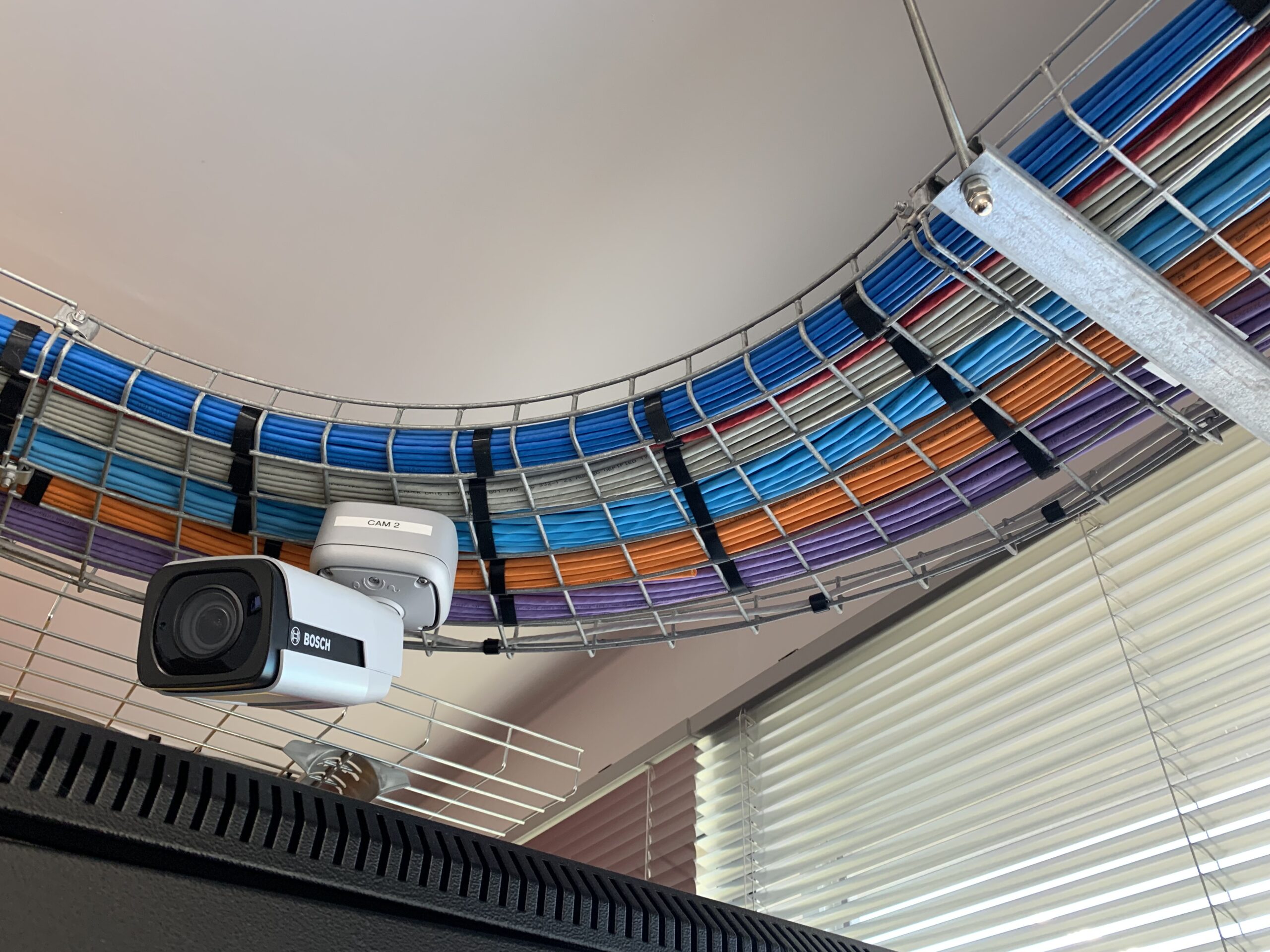An office manager arrived on a Monday morning to find the main conference room ransacked and expensive equipment missing. The grainy footage from their outdated security cameras showed only indistinct shadows. At that moment, she knew it was time for an IP CCTV system upgrade.
In today’s security-conscious world, implementing an effective IP CCTV (Internet Protocol Closed-Circuit Television) system is crucial for any modern office. It can be time-consuming if it falls to you to navigate the complexities of choosing and installing the right system. This guide will walk you through the key considerations, important questions to ask, and essential details you need to have ready when planning for an IP CCTV installation.
Key Considerations for IP CCTV Systems
- Define Your Security Objectives: Before diving into technical specifications, clearly outline what you want to achieve with your CCTV system. Are you primarily concerned with theft prevention, employee safety, or monitoring specific areas?
- Assess Your Budget: Determine a realistic budget range for your project. Remember to factor in not just the initial installation costs, but also ongoing maintenance and potential future expansions.
- Camera Selection and Placement: The type and number of cameras you need will depend on your office layout and security objectives. Consider factors like indoor vs. outdoor placement, lighting conditions, and required field of view.
- Storage and Retention Requirements: Decide how long you need to keep footage and ensure you have adequate storage capacity. This will impact your choice of recording devices and potentially your network infrastructure.
- Network Infrastructure: Many IP cameras require network connectivity. Assess your current network’s capacity to handle the additional bandwidth and consider any necessary upgrades.
- Scalability: Choose a system that can grow with your needs. You may want to add more cameras or integrate new features in the future.
- Compliance and Privacy: Ensure your CCTV system complies with relevant legal and privacy regulations. This may affect camera placement, signage requirements, and data handling procedures.
- Integration with Existing Systems: If you have other security or building management systems, consider how the new CCTV system will integrate with them.
Questions to Ask Your CCTV Installer
- What types of cameras are best suited for our specific environment?
- How many cameras will we need to cover all necessary areas?
- What resolution and frame rate do you recommend for our needs?
- How will the system integrate with our existing network infrastructure?
- What are the options for video management software, and how user-friendly are they?
- What kind of remote access options are available?
- How scalable is the system if we need to add more cameras in the future?
- What are the ongoing maintenance costs and requirements?
- How does the system ensure data security and privacy?
- What kind of customer support and warranty do you offer?
- How much storage capacity do we need for our sites/applications?
Be Prepared: Details to Have Ready
To ensure a smooth consultation and installation process, have the following information ready:
- Office floor plan or layout
- List of specific areas that need monitoring
- Current network infrastructure details
- Any existing security systems that may need integration
- The desired retention period for footage
- Number of users who will need access to the system
- Any industry-specific compliance requirements
- Budget range for the project
- Preferred brands or technologies (if any)
- Timeline for implementation
Your IP CCTV Installation Checklist
To help you stay organized throughout the process, we’ve created an IP CCTV Installation Checklist. This valuable resource covers everything from pre-installation preparation to post-installation procedures.
Implementing an IP CCTV system is a significant undertaking, but with proper planning and the right information, it can greatly enhance your office security. By considering the factors outlined in this guide and using the provided checklist, you’ll be well-prepared to make informed decisions and ensure a successful installation.
Remember, the key to an effective CCTV system lies in thorough planning, clear communication with your installer, and ongoing management. With these elements in place, you’ll have a robust security solution that meets your office’s unique needs.
CORE Cabling conducts professional IP CCTV installations for organizations all over Canada. Request a Quote today or contact us to ask how we can help!



